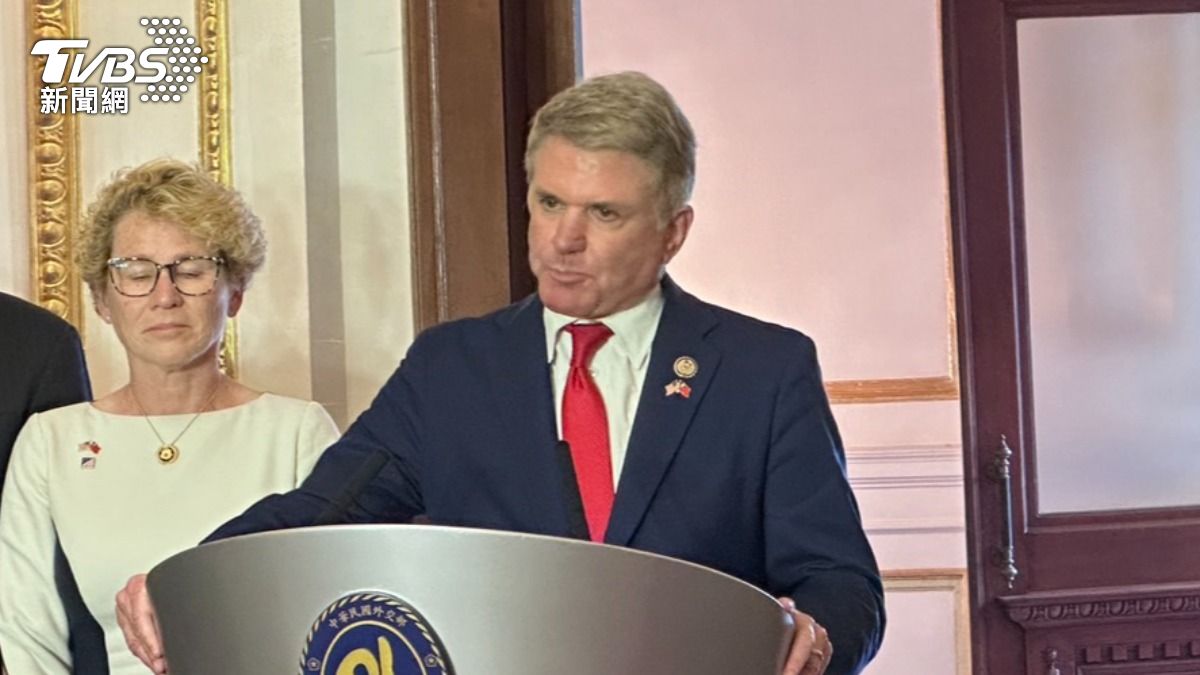TAIPEI (TVBS News) — In a significant show of support for Taiwan, Chairman of the U.S. House Foreign Affairs Committee, Michael McCaul, led a delegation to Taiwan on Sunday (May 26), amid rising tensions with China.
McCaul's visit comes on the heels of China's military exercises around Taiwan and the Kinmen and Matsu islands on May 23 and 24, which Taiwan's Ministry of National Defense reported involved 49 aircraft and 19 naval vessels crossing the median line of the Taiwan Strait and entering its southwestern airspace.
Strengthening Taiwan's Defense
During his visit, McCaul met with Taiwan's newly inaugurated President Lai Ching-te on Monday (May 27) and underscored the importance of the U.S. continuing to bolster Taiwan's self-defense capabilities in response to China's military actions.
In an interview with NBC News' Ryan Nobles, McCaul emphasized, "I think it’s very important that we show our strong support for Taiwan. I think it is a deterrent," highlighting the U.S.'s commitment to supporting freedom and democracy against authoritarian regimes. He pointed out that China's military drills were a protest against democracy, further justifying the need for strong support for Taiwan.
A Call for Enhanced Military Assets
McCaul advocated for Taiwan to acquire more sea assets, including mines, submarines, anti-ship weapons, and improved surveillance and rocket deterrence capabilities. He noted that the U.S. is hesitant to draw a red line with China, as it could provoke an attack on Taiwan. Whether defending Taiwan aligns with U.S. national security interests ultimately depends on the American people, McCaul stated.
Bipartisan Support for Taiwan
The chairman also highlighted the bipartisan support within the U.S. Congress for defending Taiwan, indicating that both Republicans and Democrats have shown strong and united support for Taiwan's affairs. He expressed confidence that U.S. policy towards Taiwan would not see significant changes, regardless of who is in office, underscoring a steadfast commitment to Taiwan's security and democracy.











